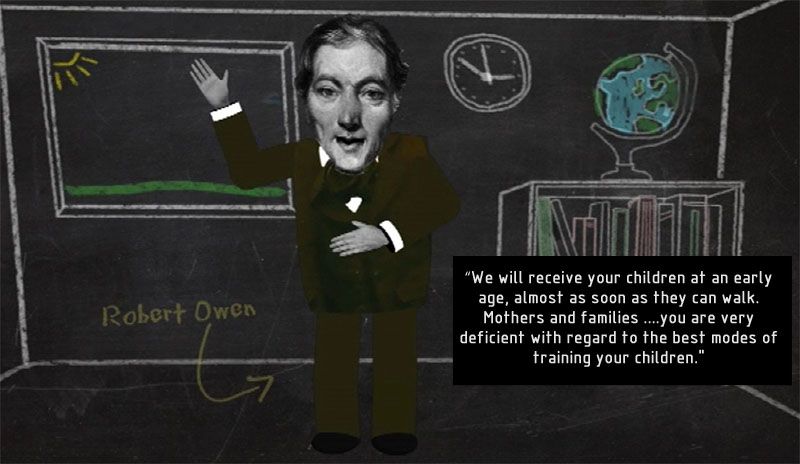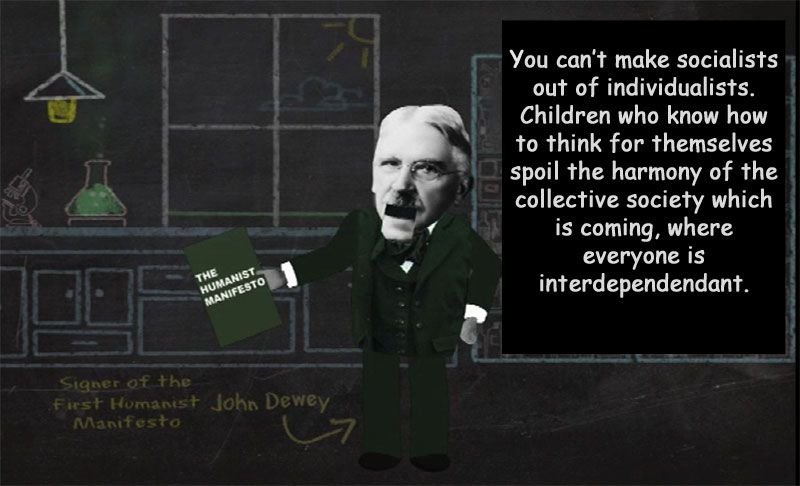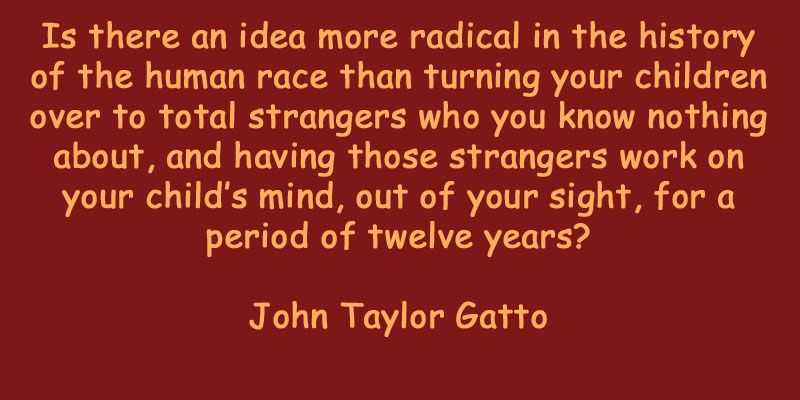I have to confess that this review of Great Commission Films DVD, may be one of the hardest I’ve done in over six years of being on the Homeschool Review Crew. IndoctriNation follows one homeschooling family on their cross country journey to interview parents, teachers, historians, and others as they study the history of public education and extrapolate just where that yellow bus might be heading. My difficultly is how to separate my opinions of and experience with the product from my opinions and experiences of the subject of the documentary: public schools and the call to withdraw our children from them. I’m a homeschooling mom after all, so it’s pretty obvious which side of the debate I’ve chosen.
 Let’s start with the facts….the main movie runs 102 minutes and was originally released in 2011. You may view it in English or Spanish with subtitles in both languages. The film has been broken into 19 segments that you can access through scene selection. A warning appears at the beginning of the film for parental discretion and I’d take it seriously. I waited until my son was spending an afternoon with his grandparents to watch the film alone. Advice: watch with a pen and pad of paper handy if you’re interested in this issue. The graphics introducing many of the speakers includes books that they’ve written for your further study.
Let’s start with the facts….the main movie runs 102 minutes and was originally released in 2011. You may view it in English or Spanish with subtitles in both languages. The film has been broken into 19 segments that you can access through scene selection. A warning appears at the beginning of the film for parental discretion and I’d take it seriously. I waited until my son was spending an afternoon with his grandparents to watch the film alone. Advice: watch with a pen and pad of paper handy if you’re interested in this issue. The graphics introducing many of the speakers includes books that they’ve written for your further study.
The first half of the film shows the current state of public schools: a recent graduate shares just because a parent opts their child out of Sex Ed doesn’t mean they won’t learn everything later on the playground. Several teachers professing to be Christian say they try share their faith through example since they can’t talk about it openly. One former math teacher is highlighted since he lost his job for mentioning Jesus in the classroom.
I was particularly taken aback by the scene where a teacher assigned the class to organize into small groups and discuss whether or not the government should not allow a man to marry a man (the date on the chalkboard in the background was 1994 so it was still illegal). The children in the class were much younger than my son (he’s 12). I’d like to believe that at their age they were only thinking in terms of playing house and not what was going on in the bedroom, but who knows what else they were being taught when the cameras weren’t rolling. In my day we didn’t even have the “health” talk in school until sixth grade and then we were segregated: boys with the principal and girls with the school nurse just to learn how our bodies would be changing—not the physical act we would someday be doing.
I realize that most of the examples are anecdotes and that it’s easy to pick and choose stories that will back your agenda. And yet most of what I heard reminded me of similar situations I’ve been made aware of in my on community. We live in a rural county—most towns have a population of less than 10,000. Our schools are supposed to be “safer” than those in urban/suburban neighborhoods but here are the facts: In 2012 our neighboring town (pop. 4000) had 3 high school students commit suicide. A new mother to homeschool co-op shared with me that her daughter had been expelled for taking mom’s prescriptions to school and selling them. The purchaser was in a coma for three days. The girl was in Jr. High, but the town is so small elementary students share the same campus and would be exposed to the same risk. Our youth pastor shared at dinner one evening that there was a lot of sexual experimentation going on in the high school, including homosexuality. Which leads me to a point made in the film, 70+ percent of Americans say there is a problem with the schools but nearly the same percentage say that their own school is just fine.
 In the second half of the film is a drive through the history of public schooling with the yellow bus stopping to take on passengers from time to time: Robert Owen, Horace Mann, Karl Marx, Charles Darwin, G. Stanley Hall, Ivan Pavlov, John Dewey and others. Don’t know all those names? You should. They are the men who shaped the public education system we have today. Very few of them had the children’s best interest at heart. Take a look at some of these quotes (FYI: I superimposed the words on screenshots from the movie).
In the second half of the film is a drive through the history of public schooling with the yellow bus stopping to take on passengers from time to time: Robert Owen, Horace Mann, Karl Marx, Charles Darwin, G. Stanley Hall, Ivan Pavlov, John Dewey and others. Don’t know all those names? You should. They are the men who shaped the public education system we have today. Very few of them had the children’s best interest at heart. Take a look at some of these quotes (FYI: I superimposed the words on screenshots from the movie).


So who should watch this movie? I don’t believe there’s any point showing the film to non-believers. They have no reason to care if morals are being taught in school without mention of God’s absolute standards. The movie is definitely for a Christian audience and the creators believe all Christians should take action by withdrawing their kids from government schools. Unfortunately, there are many families that couldn’t make it on a single income. This may lead them to feel guilt-stricken (they’d like to make a change but can’t) or become defensive (are you implying I’m not a good enough Christian or parent because I haven’t taken that radical step?). Nor do I believe you should take a copy of the film to the next school board meeting or parent teacher conference. The guests/cast of the film include enough well recognized names that any public school official would be likely to discount the entire message as hate-mongering and scare tactics.
You’re probably not going to lead many to Christ by thumping them over the head with a Bible and saying “Here, you need this.” Likewise this movie probably shouldn’t be shared until you’ve developed a strong relationship with the person you’d like to view it. When they ask “Why did you make the decision to homeschool?” invite them over to watch the movie with you. Be prepared to pause it and answer questions or share personal stories.

As for myself, the film couldn’t have come at a better time. At the beginning of the year my husband’s company cut his pay by 40 percent. That’s quite a blow for a family trying to make it on one income anyway. Thanks to this film, the one option that was never on the table was to put my son on the yellow bus so that I could find a full time job. I did find a part time job with flexible hours and with my parents help we will continue our homeschool journey.


 It’s no secret I love my pressure cooker. It makes the best pot roast in the world. It’s saved my bacon on several occasions when I’ve only got 30 minutes to get dinner on the table. And I’m always looking for new recipes to try in it. Just published is The Great Big Pressure Cooker Book with 500 recipe, and what is the first one I choose to try…hard boiled eggs.
It’s no secret I love my pressure cooker. It makes the best pot roast in the world. It’s saved my bacon on several occasions when I’ve only got 30 minutes to get dinner on the table. And I’m always looking for new recipes to try in it. Just published is The Great Big Pressure Cooker Book with 500 recipe, and what is the first one I choose to try…hard boiled eggs.

 In my years on the Review Crew I’ve had many occasions to get excited about products, but deep down I know that they’re really for my son (or rather my son’s education). This time the items for review are for me, me, me! I got the chance to pamper myself with two products from
In my years on the Review Crew I’ve had many occasions to get excited about products, but deep down I know that they’re really for my son (or rather my son’s education). This time the items for review are for me, me, me! I got the chance to pamper myself with two products from 


 You may recall that last fall I introduced my son to G.A. Henty with an audio adaption of Under Drake’s Flag. As that review was wrapping up, we learned that its producers,
You may recall that last fall I introduced my son to G.A. Henty with an audio adaption of Under Drake’s Flag. As that review was wrapping up, we learned that its producers, 
 Let’s start with the facts….the main movie runs 102 minutes and was originally released in 2011. You may view it in English or Spanish with subtitles in both languages. The film has been broken into 19 segments that you can access through scene selection. A warning appears at the beginning of the film for parental discretion and I’d take it seriously. I waited until my son was spending an afternoon with his grandparents to watch the film alone. Advice: watch with a pen and pad of paper handy if you’re interested in this issue. The graphics introducing many of the speakers includes books that they’ve written for your further study.
Let’s start with the facts….the main movie runs 102 minutes and was originally released in 2011. You may view it in English or Spanish with subtitles in both languages. The film has been broken into 19 segments that you can access through scene selection. A warning appears at the beginning of the film for parental discretion and I’d take it seriously. I waited until my son was spending an afternoon with his grandparents to watch the film alone. Advice: watch with a pen and pad of paper handy if you’re interested in this issue. The graphics introducing many of the speakers includes books that they’ve written for your further study.  In the second half of the film is a drive through the history of public schooling with the yellow bus stopping to take on passengers from time to time: Robert Owen, Horace Mann, Karl Marx, Charles Darwin, G. Stanley Hall, Ivan Pavlov, John Dewey and others. Don’t know all those names? You should. They are the men who shaped the public education system we have today. Very few of them had the children’s best interest at heart. Take a look at some of these quotes (FYI: I superimposed the words on screenshots from the movie).
In the second half of the film is a drive through the history of public schooling with the yellow bus stopping to take on passengers from time to time: Robert Owen, Horace Mann, Karl Marx, Charles Darwin, G. Stanley Hall, Ivan Pavlov, John Dewey and others. Don’t know all those names? You should. They are the men who shaped the public education system we have today. Very few of them had the children’s best interest at heart. Take a look at some of these quotes (FYI: I superimposed the words on screenshots from the movie).



 Lost Colony: The Mystery of Roanoke Island. Bothwell, Jean, and Edward F. Cortese (Illus.) . Philadelphia: Winston, 1953. 182 pp.
Lost Colony: The Mystery of Roanoke Island. Bothwell, Jean, and Edward F. Cortese (Illus.) . Philadelphia: Winston, 1953. 182 pp.